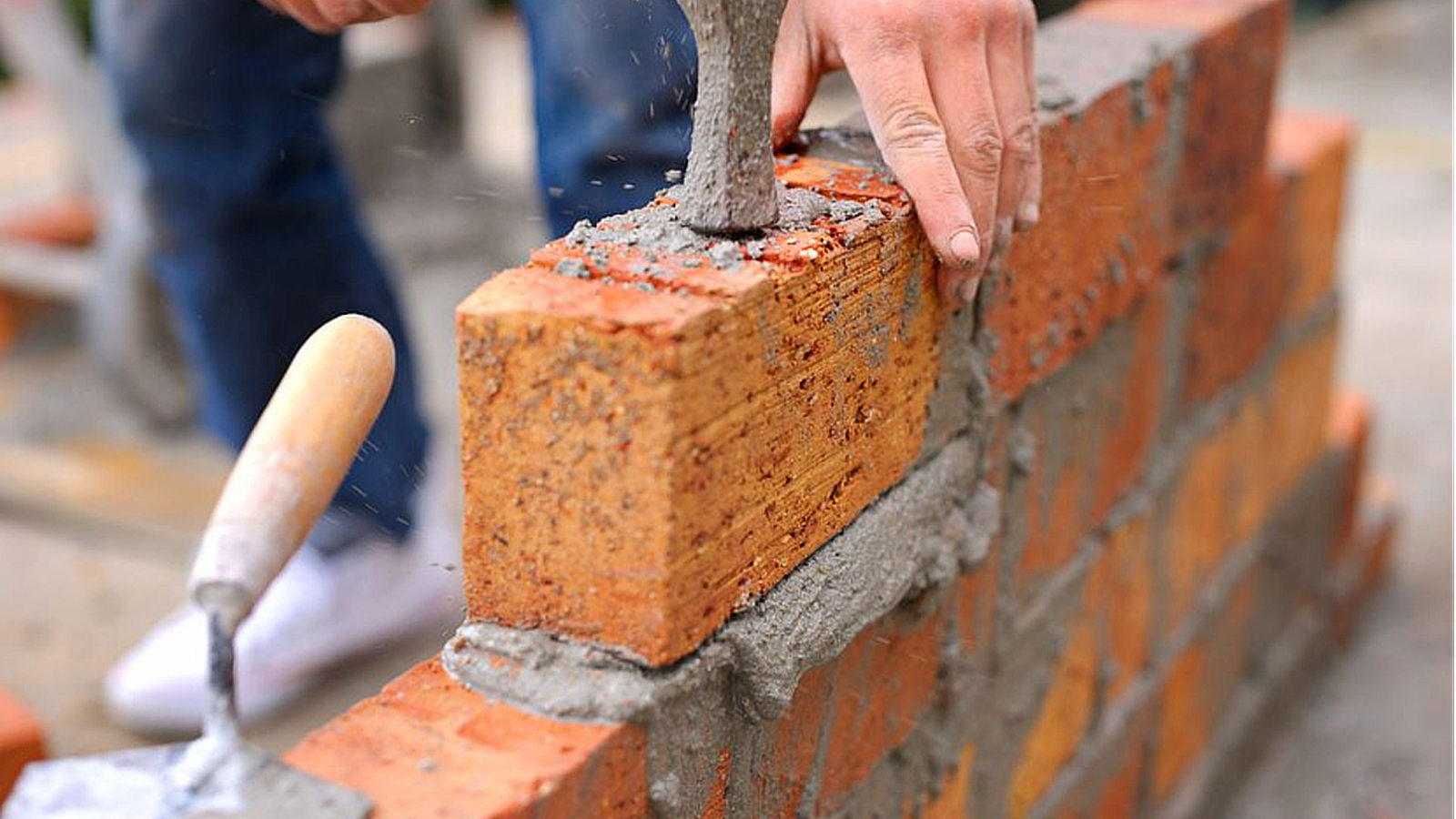
This course prepares individuals to lay building materials such as: brick, concrete block, pavers, to construct or repair walls, and other structures. Students will use trowels, levels, hammers, chisels, masonry saws, mixers, and other necessary hand or power tools of the trade. Fundaments of masonry include the information and basic skills necessary to build from blueprints: residential, commercial, and industrial structures. The goal of the course is to prepare the student for an entry-level job in a variety of areas within the building trades.
Certifications earned during this training include OSHA-10 and National Center for Construction Education and Research (NCCER).
Course Content
- Safety Instruction and Tools
- Equipment, Hand, and Power Tools
- Blueprint Reading
- Masonry
- Mortar
- Wall Layout
- Concrete Masonry
- Stonemasonry and Pre-cast Panels
Location: Trades Center, 236 Industrial Blvd, Toano, Virginia
Cost: (Please call to determine eligibility for funding)
|
Full Tuition |
Fastforward Cost |
Cost/w FANTIC |
|
$3,300 |
$1,100 |
$110.00 |
Length/Hours: 200 hours/15 weeks plus 40 hours for NCCER Core
Prerequisites for enrollment: Physical Ability to Do Work

Accelerating and Enhancing Career Education Programs (AECE) is a $2,050,925 project; $1,686,258 (82%) funded through a Federal USDOL-ETA grant and $364,667(18%) through non-federal resources.
Duties
Masons typically do the following:
- Read blueprints or drawings to calculate materials needed
- Lay out patterns, forms, or foundations according to plans
- Break or cut materials to required size
- Mix mortar or grout and spread it onto a slab or foundation
- Clean excess mortar with trowels and other hand tools
- Construct masonry walls
- Align structures, using levels and plumbs
- Clean and polish surfaces with hand tools or power tools
- Fill expansion joints with caulking materials
- Lay out and install rainscreen water systems
Masons build structures with brick, block, and stone, some of the most common and durable materials used in construction. They also use concrete—a mixture of cement, sand, gravel, and water—as the foundation for everything from patios and floors to dams and roads.
The following are examples of types of masons:
Brick masons and block masons—often called bricklayers—build and repair walls, fireplaces, and other structures with brick, terra cotta, precast masonry panels, concrete block, and other masonry materials. Pointing, cleaning, and caulking workers are brick masons who repair brickwork, particularly on older structures. Refractory masons are brick masons who specialize in installing heat- and fire-resistant masonry materials in high-temperature areas such as boilers, furnaces, and soaking pits in industrial buildings.
Cement masons and concrete finishers place and finish concrete. They may color concrete surfaces, expose small stones in walls and sidewalks, or make concrete beams, columns, and panels. Throughout the process of pouring, leveling, and finishing concrete, cement masons use their knowledge of how conditions may affect concrete and take steps to prevent defects. On small jobs, such as constructing sidewalks, cement masons may use a supportive wire mesh called a lath. On large jobs, such as constructing building foundations, reinforcing iron and rebar workers install the reinforcing mesh.
Stonemasons build stone walls and set stone exteriors and floors. They work with two types of stone: natural-cut stone, such as marble, granite, and limestone; and artificial stone, made from concrete, marble chips, or other masonry materials. Using a special hammer or a diamond-blade saw, workers cut stone into various shapes and sizes. Some stonemasons specialize in setting marble, which is like setting large pieces of stone.
Terrazzo workers and finishers, also known as terrazzo masons, create decorative walkways, floors, patios, and panels. Much of the preliminary work of pouring, leveling, and finishing concrete for terrazzo is like that of cement masons. Terrazzo workers create decorative finishes by blending fine marble chips into epoxy, resin, or cement, which is often colored. Once the terrazzo is thoroughly set, workers correct imperfections with a grinder. Terrazzo workers also install decorative micro toppings or polishing compounds to new or existing concrete.
Advancement for Mason
The masonry industry offers great benefits including advancement opportunities, job security, paid training, and financial strength - and that’s just the beginning. Masonry work presents both an analytical and creative outlet, a sense of pride in accomplishment and job flexibility. Most importantly, masonry is an enduring craft that promises to be lucrative far into the future - and the opportunities are wide open!
Masonry Worker Salaries
The median annual wage for masonry workers is $48,040. The median wage is the wage at which half the workers in an occupation earned more than that amount, and half earned less. The lowest 10 percent earned less than $33,590, and the highest 10 percent earned more than $78,810.
Median annual wages for masonry workers are as follows:
|
Brick masons and block masons |
$59,340 |
|
Terrazzo workers and finishers |
$48,680 |
|
Stonemasons |
$47,610 |
|
Cement masons and concrete finishers |
$47,340 |
The median annual wages for masonry workers in the top industries in which they work are as follows:
|
Masonry contractors |
$54,350 |
|
Construction of buildings |
$48,630 |
|
Heavy and civil engineering construction |
$47,890 |
|
Poured concrete foundation and structure contractors |
$47,190 |
Most masons work full time, and some work overtime to meet construction deadlines. Masons work mostly outdoors, so inclement weather may affect schedules. Terrazzo masons may need to work hours that differ from a regular business schedule, to avoid disrupting normal operations.
Register Online
Register for classes online using the Virginia Peninsula Workforce Development registration system.
